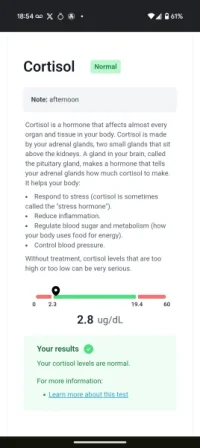DixieWrecked
Well-Known Member
I have been taking 1.5 grain of compounded NDT for about a month along with Selenium and a trace mineral supplement. Here are my current numbers.
________________________________________________________________________________________________________________
TSH: not included, thought it was
Free T3: 3.5
T3 Range: 2-4.4
Reverse T3: 25.3 high
Reverse T3 range: 9.2-24.1
Free T4: 1.36
T4 Range: 0.82-1.77
TPO and antibodies were totally healthy undetectable
________________________________________________________________________________________________________________
I essentially don't feel any different than before. The reason I started taking NDT is becuase it was originally prescribed by Defy about 6 years ago but I never went down that path. I finally thought I would try to address this because I feel like my energy is suboptimal. The reason they prescribed NDT 6 years ago was to treat a TSH of 2.7. Is the best course of action to switch to a lower dose of NDT and add in some T3?
Thanks for taking the time to read.
________________________________________________________________________________________________________________
TSH: not included, thought it was
Free T3: 3.5
T3 Range: 2-4.4
Reverse T3: 25.3 high
Reverse T3 range: 9.2-24.1
Free T4: 1.36
T4 Range: 0.82-1.77
TPO and antibodies were totally healthy undetectable
________________________________________________________________________________________________________________
I essentially don't feel any different than before. The reason I started taking NDT is becuase it was originally prescribed by Defy about 6 years ago but I never went down that path. I finally thought I would try to address this because I feel like my energy is suboptimal. The reason they prescribed NDT 6 years ago was to treat a TSH of 2.7. Is the best course of action to switch to a lower dose of NDT and add in some T3?
Thanks for taking the time to read.












